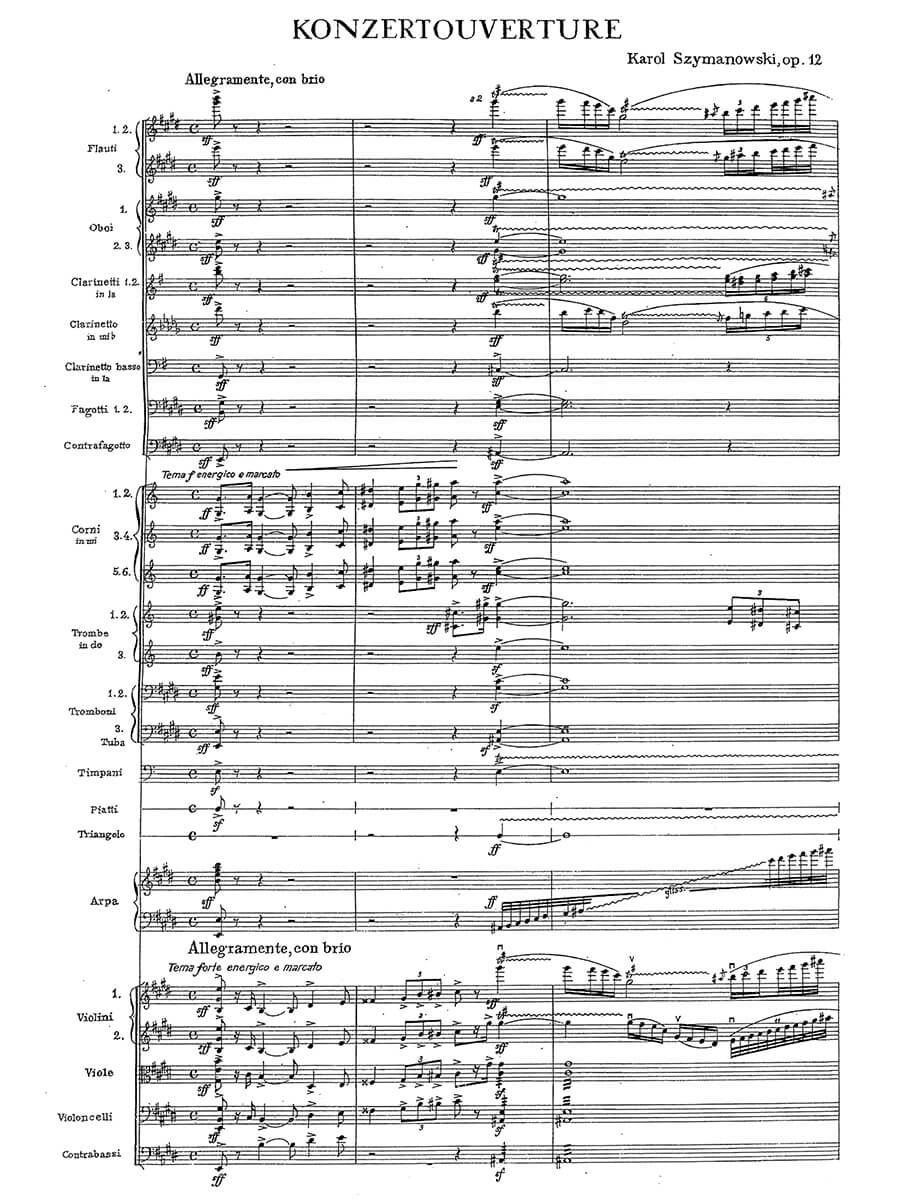Concert Overture in E major, Op. 12
Szymanowski, Karol
28,00 €
Karol Szymanowsky – Concert Overture in E major, Op. 12
(b. Tymoszóka, Ukraine, 6 October 1882 – d. Lausanne, 29 March 1937)
Preface
Karol Szymanowsky was born on October 3, 1882 in Tymoszówka (Ukraine, Czehryński poviat)1, in a noble family of Korwin-Szymanowsky’s, with a genealogy dating back to the 16th century. He was the third of five descendants of Stanisław Bonawentura Korwin-Szymanowsky and affectionately called “Catotee”. Growing up in an artistic environment, his father was his first music teacher, as he played the piano. His siblings were also artistically gifted: brother Feliks was a pianist, sister Stanisława was a singer, Zofia was a poet, and Anna was a painter. Szymanowsky grew up with the masterpieces of Western European culture, but also learned about the multiculturalism of the eastern borderlands before the division, where different nationalities met: Poles, Ruthenians, Jews, Armenians, Cossacks, Tatars and Germans.
Three periods can be distinguished in Szymanowsky’s work: until 1913 the time of his youthful search for a stylistic language, until 1919 inspiration by the Orient and ancient culture, and after 1920 national inspired creativity. Szymanowsky’s first inspirations were operas: Lohengrin by Richard Wagner (1813-1883) and Rusalka by Aleksander Dargomyżński (1813-1869). Even as a young man, he knew that he could not compose the symphonic music right away. “My preferences (Beethoven, Wagner) testified to my innate drive to symphonic music, especially dramatic […]. A year before coming to Warsaw to study, I realized that I couldn’t start with operas and I threw myself into the piano, with all my momentum”2. Until 1901, he wrote sonatas, which remained in the manuscripts, and like Fryderyk Chopin, the preludes and etudes.
Instead of choosing to study at the renowned St. Petersburg Conservatory, he began studying composition with Zygmunt Noskowski in Warsaw in 1902. However, he did not share the anti-Wagnerian and anti-Schopenhauer views of his professor. During the student period, he composed: Variations in B flat minor, Four Etudes, Op. 4, Piano Sonata No. 1, Op. 8, Violin Sonata in D minor, Op. 9, Variations on a Polish folk theme in B minor, Op. 10, Three fragments from poems by Jan Kasprowicz, Op. 5 and the song Swan, Op. 7. These works included the elements of a modern musical language, modernist harmony and a multi-layered piano texture. …
Read full preface / Das ganze Vorwort lesen> HERE
| Score No. | 4658 |
|---|---|
| Edition | Repertoire Explorer |
| Genre | Orchestra |
| Size | |
| Printing | Reprint |
| Pages | 98 |
